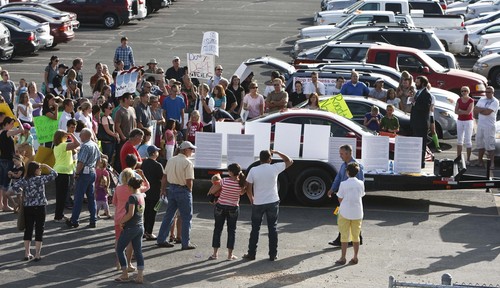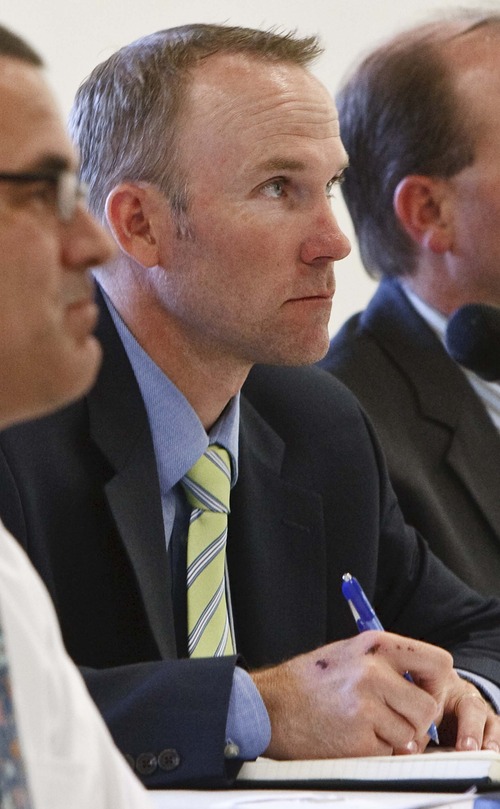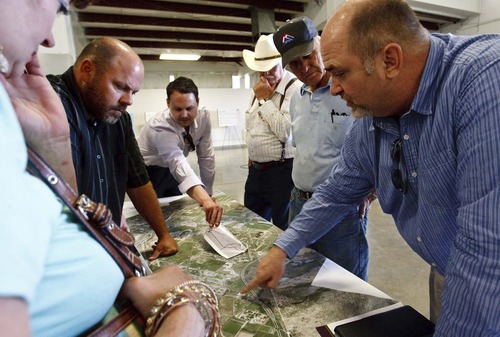This is an archived article that was published on sltrib.com in 2014, and information in the article may be outdated. It is provided only for personal research purposes and may not be reprinted.
Farmington is serving notice that it may sue to block the proposed route of the West Davis Corridor freeway and force the Utah Department of Transportation to redo the project's environmental-impact statement.
The city says it will do so unless UDOT removes three "conservation easements" the city owns near the Great Salt Lake from the freeway's route, which it contends is required by federal law and rule.
"Farmington City will be required to protect its interests if these problems are not rectified by complete avoidance by the West Davis Corridor of these conservation easements," wrote Jeffrey W. Appel, an attorney hired by Farmington.
His seven-page letter, dated Feb. 21, was sent to UDOT and the Federal Highway Administration.
The freeway would be the northwest extension of the Legacy Parkway — which itself was built after a four-year legal battle over potential damage to wetlands.
Appel wrote that Farmington believes UDOT and the Federal Highway Administration decided first where they wanted the freeway to go, and then their environmental review "and conclusions were reverse-engineered to support that preconceived result" to take advantage of the empty fields in the conservation easements.
He contends that federal rules require giving deference to local officials to identify significant public lands that should be excluded from such routes, and said Farmington told federal and state officials in the process that the easements "must be preserved for such things as parks, recreation areas or wildlife/waterfowl refuges."
The city purchased the easements requiring such uses in perpetuity, Appel said, and not for roads.
Farmington Mayor Scott Harbertson said in an earlier interview that the conservation easements were set up as a buffer between the city and the lake. "It was set up so we wouldn't have any growth out there. Now we would have more urban sprawl" if the freeway goes through and ignores open-space protections.
Appel wrote that the city has requested documents to show why the easements were included in plans for the route, but has not been given much. The environmental documents "ignored or misstated" the "purposes, current uses and plans for the land," he contends.
"This is a fatal flaw for the entire West Davis Corridor DEIS [draft environmental impact statement] … that will legally disable the entire effort."
Farmington City Administrator Dave Millheim said the city is also upset that UDOT has been buying property along its proposed route, even though the draft environmental impact statement has not been finalized.
UDOT spokesman John Gleason said, "We are aware of Farmington City's concerns, and will continue to work with them throughout this process. UDOT has not purchased any properties in Farmington. We are considering purchasing land on both [major] alternatives" considered in the draft environmental impact statement.
UDOT has said it hopes to issue a final environmental impact statement by this summer, and hopes for a confirming final record of decision by the Federal Highway Administration by the end of the year.
UDOT slowed that process after receiving a flood of 1,600 comments last year on its draft environmental impact statement, including one from the U.S. Army Corps of Engineers that threatened to deny permits needed for construction because of potential damage to Great Salt Lake wetlands.







